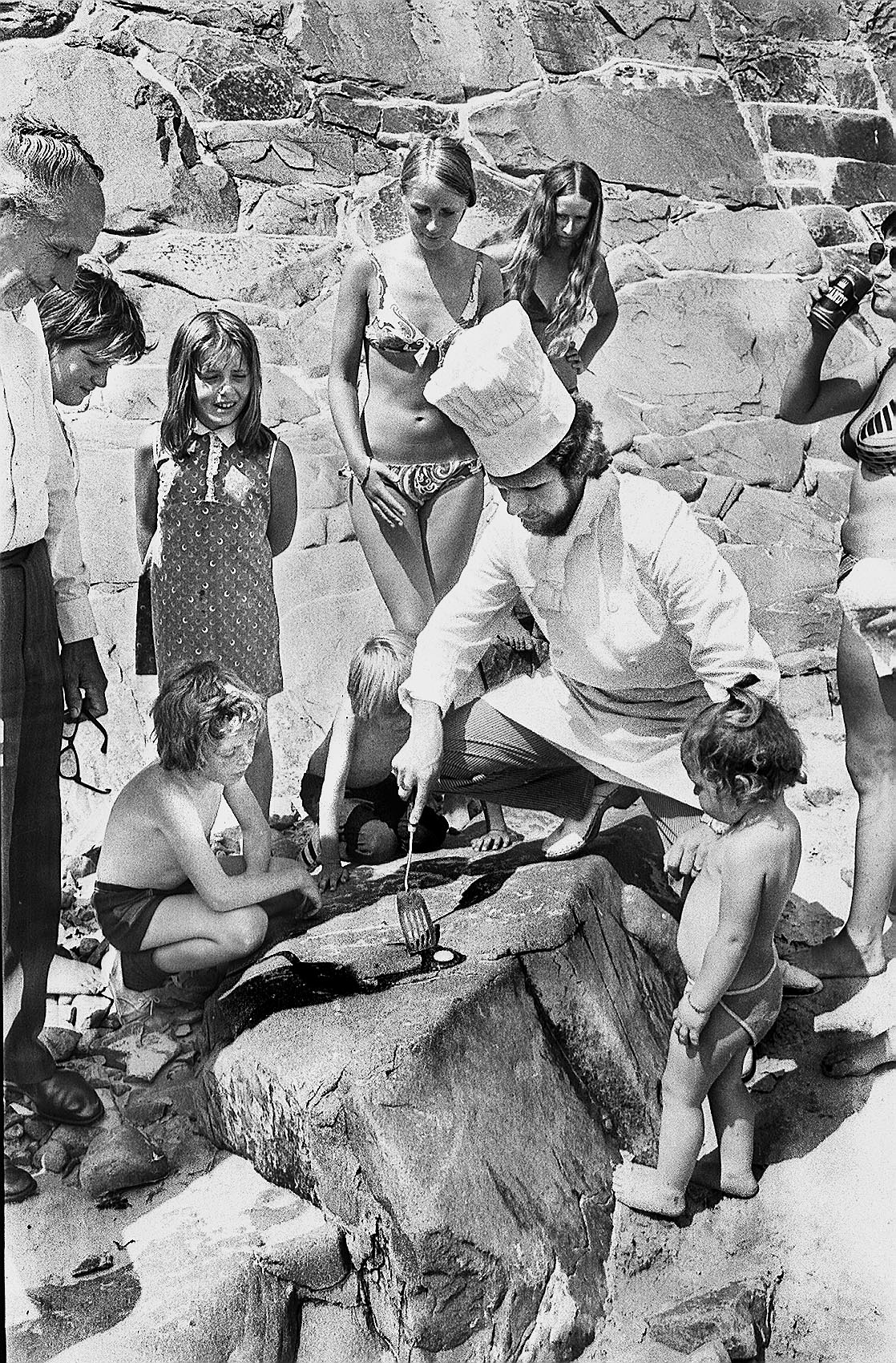Nine consecutive days of temperatures peaking at 25°C or above were recorded by Jersey Met up until Thursday, including several where the mercury extended beyond 30°C.
The British Isles experienced an exceptional summer in 1976, with Jersey recording two separate periods – lasting 13 and nine days – of temperatures rising beyond 25°C.
It also saw Jersey’s longest drought, when the Island went 39 consecutive days without any measurable rain.
The hot summer of 2020 has maintained a steady increase in temperatures, both globally and in Jersey.
Figures released by Jersey Met at the end of 2019 showed an almost consistent increase in temperatures since the start of the 1900s, with a noticeable escalation in the number of hotter-than-average years since the beginning of the 1990s.
Up to 2019, seven of the Island’s top-ten hottest years on record had occurred since 2000.
The data was used by local artist Ian Rolls to produce a striking visual display of temperature stripes that can be seen at the Waterfront in St Helier.
Although the Island has so far avoided the dramatic thunderstorms seen in parts of the UK and France this week, rainfall has brought lower temperatures and some relief from the intense heat.
Yesterday saw a dull and drizzly morning give way to slightly brighter conditions later in the day, with a maximum of 19°C, but the sunshine is forecast to return today with temperatures climbing back to the mid-20s. Forecaster Jim Galvin said: ‘Saturday should be pleasant, with sunny spells and pleasantly warm with a maximum of 24°C, but it’ll be cooler on Sunday with outbreaks of showery rain and a risk of thunderstorms.’
Mr Galvin said conditions for the early part of next week should be generally good, with maximum temperatures of 23°C or 24°C, but still the risk of a shower. Before the recent hot spell, Jersey had seen four periods of eight consecutive days or more where the temperature exceeded 25°C since records began in 1894:
- Eight days in 1947, 13–20 August.
- Eight days in 1949, 27 June–4 July.
- Nine days in 1976, 8–16 July.
- 13 days in 1976, 24 June–6 July.

The hot weather has also had an effect on the sea temperature in Jersey waters, with a figure of 19.5°C recorded at St Helier Harbour yesterday.
This compares with an average August temperature of 18.1°C for the 30-year period ending in 2010. The Island’s highest recorded sea temperature was 20.7°C in August 1989, while the most recent occasion that the sea reached 20°C was in 2003.






